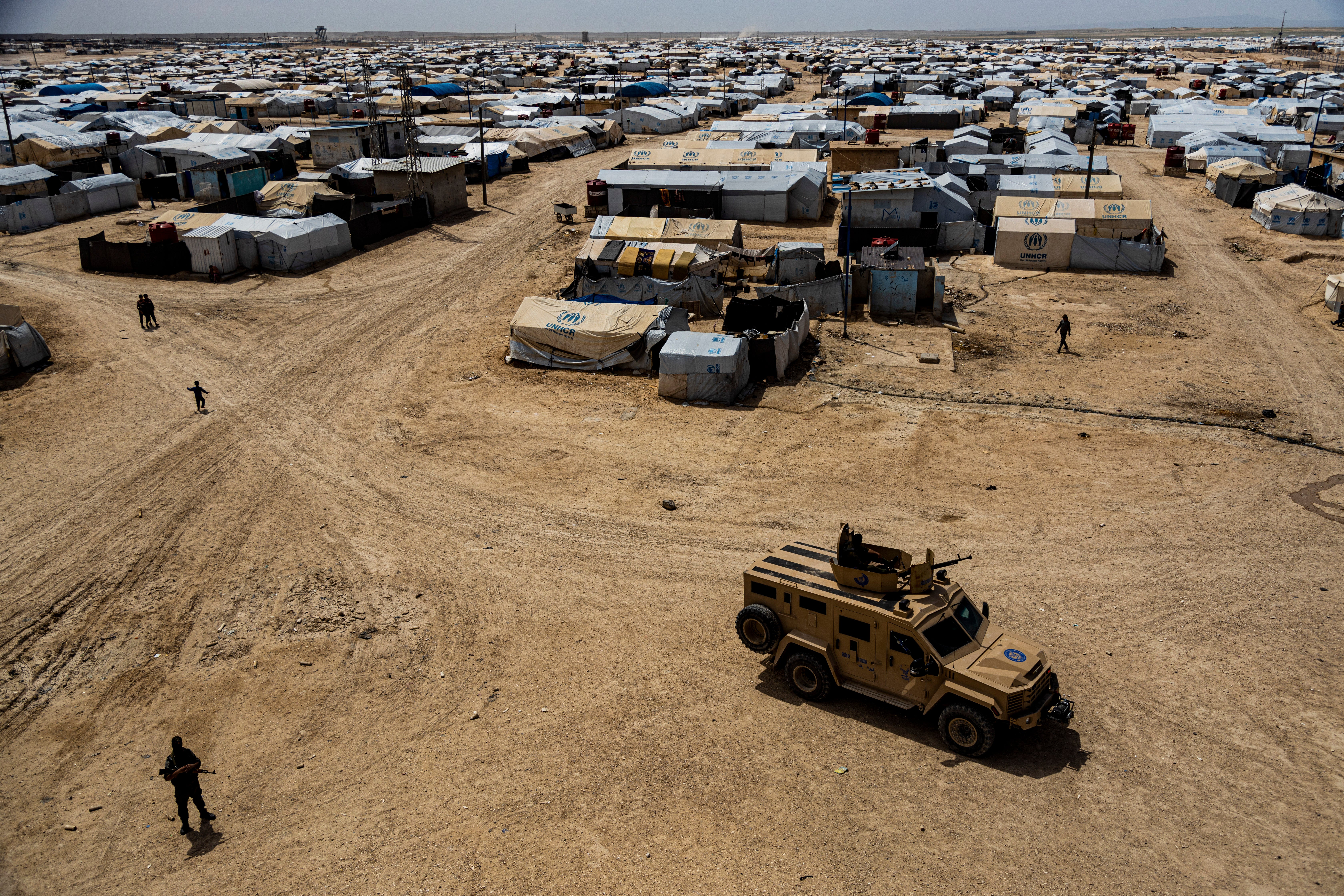Iraq repatriates nearly 700 more citizens linked to the Islamic State group from a Syrian camp
Iraqi and Syrian officials say Baghdad has repatriated hundreds more of its citizens linked to the Islamic State group from a sprawling camp in northeastern Syria

Iraq has repatriated hundreds more of its citizens linked to the Islamic State group from a sprawling camp in northeastern Syria, Iraqi and Syrian officials said Monday.
Ali Jahangir, a spokesman for Iraq’s Ministry of Migration and Displaced, said the nearly 700 Iraqis, mostly women and children, arrived late Sunday at a camp near Iraq’s northern city of Mosul, where they will undergo a rehabilitation program with the help of international agencies in an effort to distance them from extremist ideology.
Despite an aggressive repatriation campaign by Baghdad, Iraqis remain the largest nationality among the nearly 43,000 residents of al-Hol camp which houses the wives, widows, children and other family members of IS militants. Syrians are the second-largest nationality. More than 6,000 people from 57 other countries are housed in a separate area known as the Annex.
“These are Iraqi citizens that we have to rehabilitate,” Jahangir said. “Leaving them at al-Hol camp means they are a time bomb that could threaten Iraq’s security.”
In 2014, IS declared a caliphate in large parts of Iraq and Syria and attracted tens of thousands of supporters from around the world. The extremists were defeated by a U.S.-led coalition in Iraq in 2017 and in Syria in 2019. Tens of thousands of people linked to the group were taken to al-Hol camp close to the Iraqi border.
The heavily guarded camp, overseen by the U.S.-backed and Kurdish-led Syrian Democratic Forces, was once home to 73,000 people.
Sheikhmous Ahmad, a Kurdish official overseeing camps for displaced in northeastern Syria, said 187 families consisting of 697 Iraqis were repatriated Sunday. He said it was the 15th group to return home.
An SDF official, Siamand Ali, said the presence of foreigners at al-Hol and the smaller Roj camp is a burden on the force that also protects the facilities and raids IS sleeper cells that carry out deadly attacks in Syria.
“Repatriating them to their countries is a positive step and reduces the pressure on us,” Ali said.
Iraq’s Yazidi community has expressed concerns over the repatriations of IS families fearing a repetition of the extremist massacre against the community that took place in 2014. Then, IS militants killed thousands of men and took many women and teenage girls who were held as sex slaves.
Khairi Bozani, the director of office for Yazidi abductees, said they have raised the community’s concerns with Iraqi officials because some of the repatriated families are being placed in areas around the Yazidi heartland of Sinjar. Bozani said that even though the returnees are mostly women and children, they still carry the extreme ideology of the Islamic State group.
The office of Iraq’s national security adviser said 7,556 citizens have been repatriated from al-Hol. Jahangir said they have no exact figures of how many Iraqis remain at the camp.
Hawar News, the news agency for the semiautonomous Kurdish areas in Syria, said the latest figures from al-Hol show 42,781 people there including 19,530 Iraqis, 16,779 Syrians and 6,461 other nationalities. The agency says 11 residents have not been identified.
Last week, Kurdish-led authorities repatriated 50 women and children from al-Hol and Roj camps to Tajikistan.
___
Mroue reported from Beirut. Associated Press journalist Salar Salim contributed to this report from Irbil, Iraq.
Bookmark popover
Removed from bookmarks